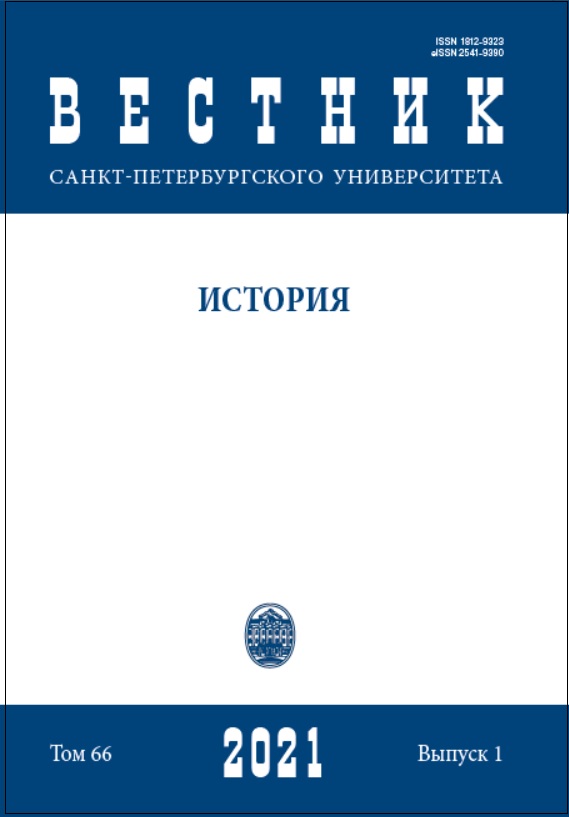The Greek Monasteries of the Pontus and Russia in Modern Times
DOI:
https://doi.org/10.21638/spbu02.2021.106Abstract
The article concentrates on one of the aspects of the Eastern question, the Russian struggle for penetration in the Eastern part of the Ottoman Empire in the 19th and early 20th century. This region of Turkey was an object of special attention for Russian foreign policy. The church direction was of special importance in the exercise of Russian influence: the preservation of Orthodoxy was an important task of the Russian representatives. The traditional method of material aid for the Orthodox monasteries and churches was widely used. They regularly received permissions for gathering donations in Russia. Another method used in the 19th century was the open support of the Orthodox population by the Russian consuls. During the reforms (Tanzimat) in the Ottoman Empire many secret Christians from the eastern regions proclaimed themselves Orthodox. The Russian diplomats after the Crimean war intermediated the convertion of the cryptochristians into Orthodoxy. The study of Trapezund and its monasteries by the Russian byzantologists in the end of the 19th and beginning of the 20th century also contributed to the penetration of the region. Apart of the direct scientific results, their research contributed to the strengthening of Russian authority among the local population. The relations and cooperation of the Russian commandment with the local clergy during the Russian occupation in 1916-1917 and the scientific expedition of Feodor Uspenskii were the last page of this history. Based on inedited archive sources, the article traces how different ways of church policy served the strengthening of Russian influence in Eastern Turkey.
Keywords:
Eastern question, Ottoman Empire, church policy, Eastern Pontus, diplomacy, Orthodoxy
Downloads
References
Downloads
Published
How to Cite
Issue
Section
License
Articles of "Vestnik of Saint Petersburg University. History" are open access distributed under the terms of the License Agreement with Saint Petersburg State University, which permits to the authors unrestricted distribution and self-archiving free of charge.





